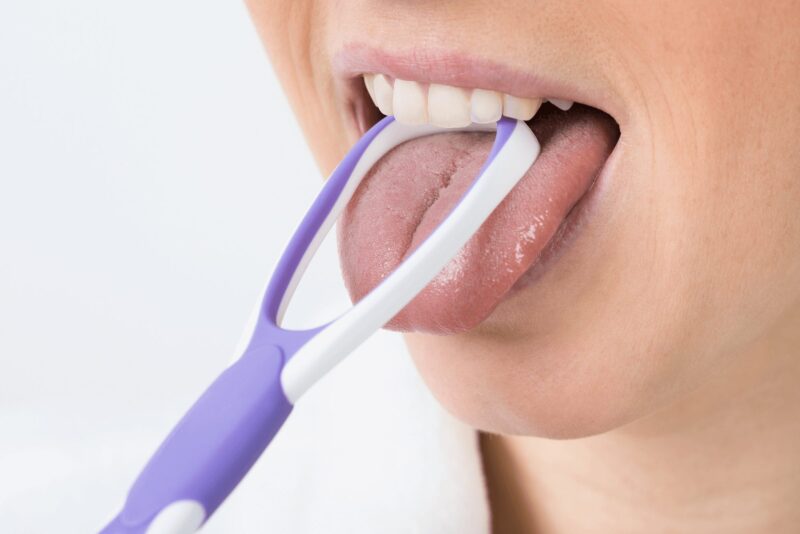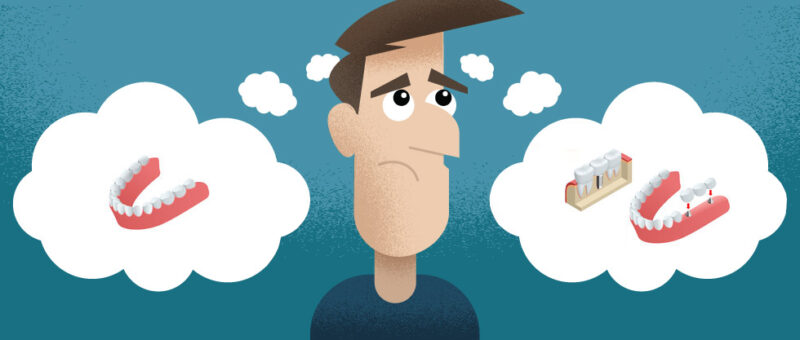While everyone has bad breath from time to time, when does it become a problem? Bad breath, technically known as halitosis, can be a chronic issue that can affect your day-to-day life if you can’t get it under control. It can be caused by a host of things, so it’s important that you understand the root causes of bad breath so you can get yours under control and start living life without worry. The best way to combat halitosis is good dental hygiene that includes brushing your tongue (it’s where most of your bad breath germs live!), but more on that later on.
For now, let’s go into some more of the root causes of bad breath.
What Causes Bad Breath?
Poor oral care
This might seem like a no-brainer, but poor oral hygiene will lead to bad breath (and a lot more issues). If you don’t brush and floss daily, food and bacteria will remain in your mouth and in between your teeth, which will cause bad breath. Additionally, this build-up of debris will lead to plaque which can irritate your gums and eventually form plaque-filled pockets between your teeth and gums. This can also lead to bad breath and gum disease.
Tobacco products
Smoking is another oral habit that causes a lot of issues, but it’s also a huge contributor to bad breath. Unlike normal halitosis, however, it has its own unpleasant mouth odor.
Anything that can make your mouth dry
Saliva is the key to making your mouth and digestive system work properly, so if you suffer from dry mouth, it can severely impact the inner workings of your body. Dry mouth can contribute to bad breath specifically because saliva washes out the bacteria that causes bad breath, and without it, the bacteria is free to live and multiply in your mouth and cause unwanted odor. That being said, occasional bouts of dry mouth are normal, but if you suffer from chronic dry mouth, you could have an underlying medical condition.
Sugar
Even though sugar is tasty, it’s not good for your teeth and mouth. Sugar increases the bacteria in your mouth, so it naturally causes bad breath. Eating sugar in moderation is, of course, fine, but be sure to watch your consumption and practice proper oral hygiene in order to stave off bad breath.
Very acidic foods
Foods containing a lot of acid, such as citrus and coffee, can fuel bacteria production and cause bad breath. Again, these types of foods are fun in moderation, but be sure to flush your mouth with water after eating them and practice good oral care.
How to Prevent Bad Breath
Whether you are preparing for a job interview, date, or just a night out, bad breath may be a concern! It happens to everyone and can be completely normal, but there are a few ways to prevent that pesky problem when you need your breath to smell fresh and clean.
1. Avoid problem foods, such as onions, garlic, cheese, and very sugary snacks such as soda or candy.
Some of those foods are a given, as their smell is very strong and can linger in your mouth, but sugary treats can also coat the teeth and tongue, causing bacteria to form, which also causes bad breath.
2. Avoid tobacco products, which can cause very serious bad breath.
Seek help in quitting your habit if needed, and at the very least, before any major event, avoid partaking.
3. Brush and floss those teeth!
Food lingering in your mouth and between your teeth causes bacteria, which creates that odor we associate with foul breath. Take time to brush thoroughly, floss, and use a tongue scraper or brush your tongue. Don’t skip that last part- the tongue is often where the odorous bacteria is collecting!
4. Get checked out.
If you are experiencing chronic bad breath, not the occasional I-ate-some-onions-for-lunch breath, mention it at your next dental visit. Don’t hesitate to ask–it is nothing to be embarrassed about, and it could be an indicator of an easily solved health issue, or symptom of something more serious. Bad breath can indicate a sinus infection, sleep issues, diabetes, cavities, liver problems, gum disease, or kidney ailments. Most likely, the issue is nothing more than a dental health concern, but it is always best to catch things early.
How to Get Rid of Bad Breath
Home Remedies
Tongue Scraping
Many bad breath germs live on your tongue, so incorporating tongue scraping into your oral care routine will help you tackle bad breath better than with just brushing and flossing alone.
Water
Water is one of the most important substances for your mouth in general, but it can be extra useful when you’re fighting bad breath. Water helps to flush out bad breath bacteria, so drinking plenty of it (along with gurgling with it between meals and snacks) can help tremendously reduce your bad breath symptoms.
Parsley
Parsley’s fresh scent and high chlorophyll content are said to be naturally deodorizing. To use parsley as a natural bad breath remedy, simply chew on fresh leaves after each meal or buy an over-the-counter parsley supplement.
Pineapple
Even though pineapple can be considered an acidic food, its specific acids have been linked to neutralizing unpleasant tastes and odors in the body. If you want to use it for bad breath, drink a glass of pineapple juice or chew on a few slices of pineapple.
When to See a Dentist About Your Bad Breath
If you’ve noticed that you have persistent bad breath, no matter how good your oral care routine is, it may be time to see your dentist. There may be an underlying medical issue that is causing your symptoms, and your dentist can help uncover them or refer you to a specialist who can.
If you’re in the Westminster, MD area and need to see a dentist about your bad breath, give us a call to discuss our bad breath services.


